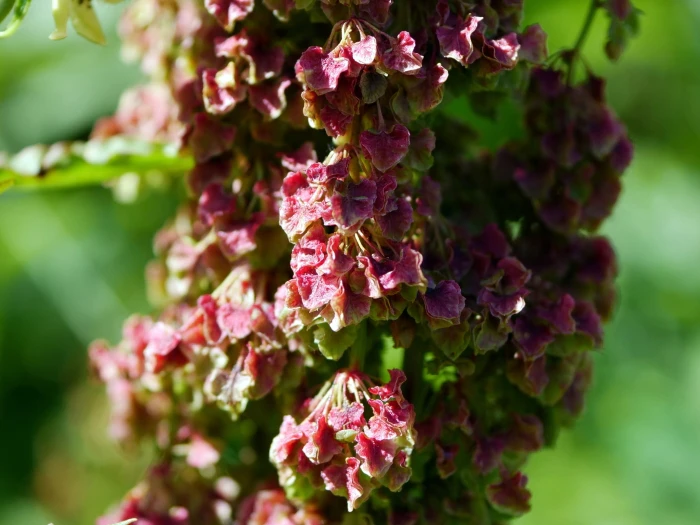Monk’s-Rhubarb
/
(Rumex alpinus)
Monk’s-Rhubarb (Rumex alpinus)
/

Wolfgang Jauch
CC BY 4.0
Image By:
Wolfgang Jauch
Recorded By:
Copyright:
CC BY 4.0
Copyright Notice:
Photo by: Wolfgang Jauch | License Type: CC BY 4.0 | License URL: http://creativecommons.org/licenses/by/4.0/ | Rights Holder: Wolfgang Jauch | Publisher: iNaturalist | Date Created: 2020-08-06T11:21:07-07:00 |

























Summary
Rumex alpinus, commonly known as Monk’s-rhubarb or Alpine dock, is a perennial herb that is native to mountainous regions and subalpine meadows of Europe and Western Asia, particularly thriving in the Alps and the Carpathians. It is adapted to high elevations, often found up to 7874 feet (2400 meters). This species prefers moist, nutrient-rich soils in its native habitat and can be found in meadows, pastures, and along streams. Alpine dock can reach heights of 24 to 79 inches (60 to 200 centimeters) and is characterized by its large, ovate-round leaves that can be quite substantial, with stout stalks. The plant produces dioecious flowers, meaning individual plants are either male or female, with the flowers arranged in dense terminal panicles that are greenish to reddish in color.
Monk’s-rhubarb is not commonly cultivated but can be used in wild gardens or as a novelty vegetable, similar to common rhubarb, although it is less palatable. It is valued for its large, ornamental leaves and its historical use in herbal medicine. In cultivation, it requires consistently moist soil and can tolerate partial shade to full sun. While it can be an interesting addition to a garden, it can spread outside its native range due to its robust growth and ability to spread by seeds and root fragments. Gardeners should check local regulations before planting and consider containment measures to prevent unwanted spread.CC BY-SA 4.0
Monk’s-rhubarb is not commonly cultivated but can be used in wild gardens or as a novelty vegetable, similar to common rhubarb, although it is less palatable. It is valued for its large, ornamental leaves and its historical use in herbal medicine. In cultivation, it requires consistently moist soil and can tolerate partial shade to full sun. While it can be an interesting addition to a garden, it can spread outside its native range due to its robust growth and ability to spread by seeds and root fragments. Gardeners should check local regulations before planting and consider containment measures to prevent unwanted spread.CC BY-SA 4.0
Plant Description
- Plant Type: Herb
- Height: 3-5 feet
- Width: 2-3 feet
- Growth Rate: Moderate
- Flower Color: Green
- Flowering Season: Summer
- Leaf Retention: Semi-deciduous
Growth Requirements
- Sun: Full Sun, Part Shade
- Drainage: Medium
Common Uses
Border Plant, Edible*Disclaimer: Easyscape's listed plant edibility is for informational use. Always verify the safety and proper identification of any plant before consumption., Low Maintenance
Natural Habitat
Native to mountainous regions and subalpine meadows of Europe and Western Asia
Other Names
Common Names: Monk’s-rhubarb, Butter Dock, Mountain-Rhubarb, Munk’s Rhubarb
Scientific Names: Rumex alpinus, Acetosa alpina, Lapathum alpinum, Lapathum rotundifolium, Lapathum rotuodifolium, Rhabarbarum monachorum, Rheum rhaponticum, Rumex alpinus, Rumex candollei
GBIF Accepted Name: Rumex alpinus
